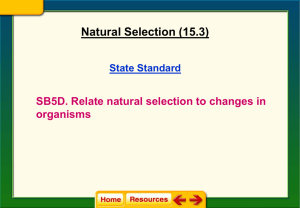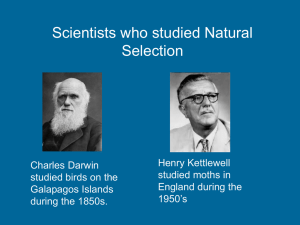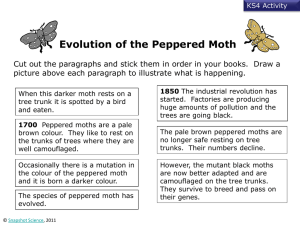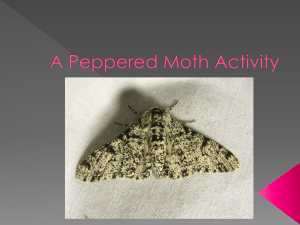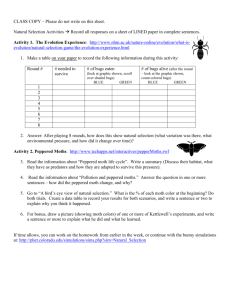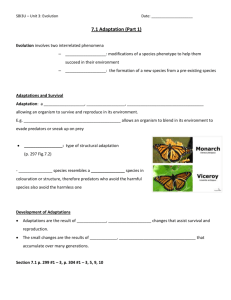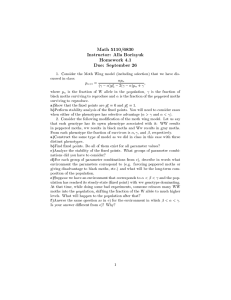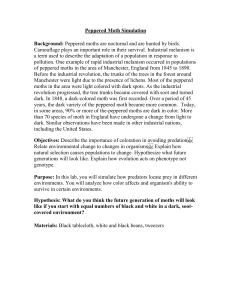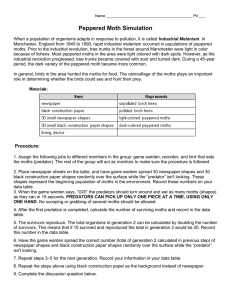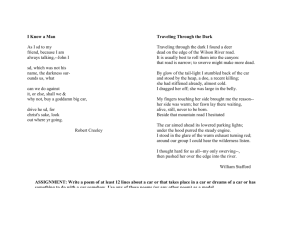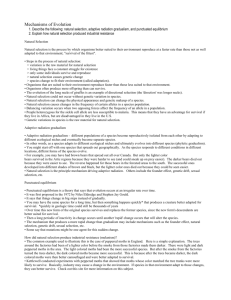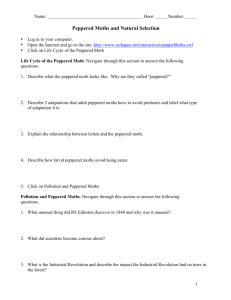Final Exam SG_Final_AK (2)
advertisement
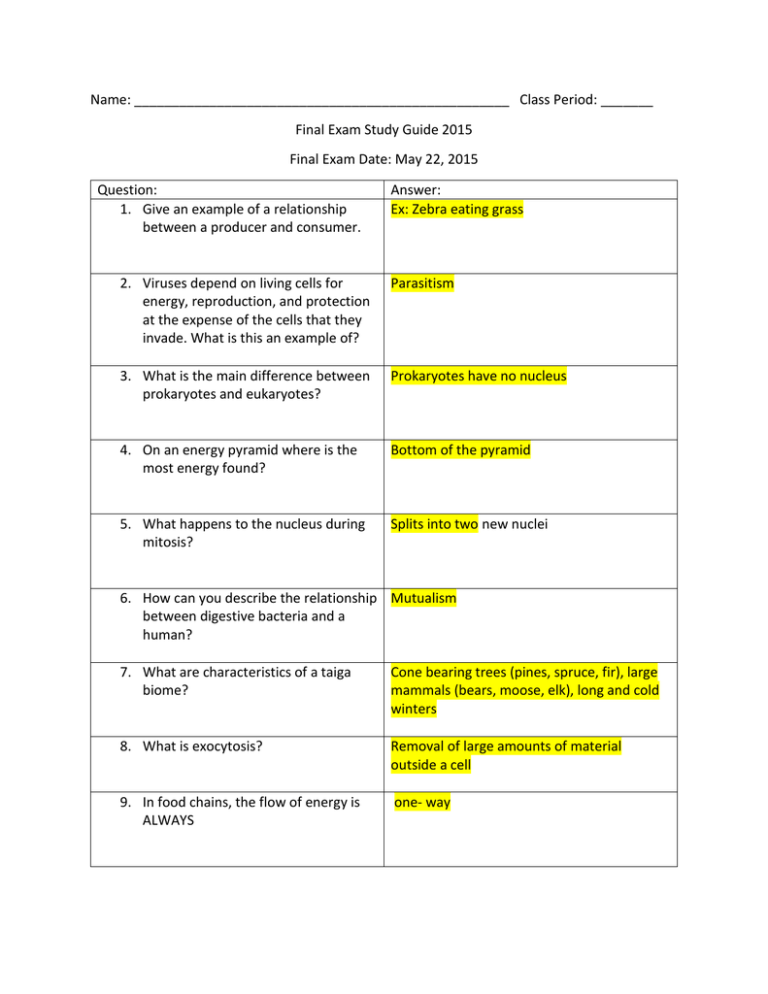
Name: __________________________________________________ Class Period: _______ Final Exam Study Guide 2015 Final Exam Date: May 22, 2015 Question: 1. Give an example of a relationship between a producer and consumer. Answer: Ex: Zebra eating grass 2. Viruses depend on living cells for energy, reproduction, and protection at the expense of the cells that they invade. What is this an example of? Parasitism 3. What is the main difference between prokaryotes and eukaryotes? Prokaryotes have no nucleus 4. On an energy pyramid where is the most energy found? Bottom of the pyramid 5. What happens to the nucleus during mitosis? Splits into two new nuclei 6. How can you describe the relationship Mutualism between digestive bacteria and a human? 7. What are characteristics of a taiga biome? Cone bearing trees (pines, spruce, fir), large mammals (bears, moose, elk), long and cold winters 8. What is exocytosis? Removal of large amounts of material outside a cell 9. In food chains, the flow of energy is ALWAYS one- way 10. In order for a population to survive, sexual reproduction must produce offspring that can survive and reproduce 11. Rabbits feed on plants in a meadow. What would happen to the rabbits if the plant population got destroyed? decrease of population size of rabbits 12. What happens to the amount of available energy in the pyramid as it moves up through the different levels? decreases 13. Elephants provide birds protection and the birds clean the elephant. What type of relationship is this? mutualism 14. How do you think a food web would be affected if the plants were eliminated? Food web would completely collapse 15. The main source of energy for our planet is/ are 16. A human skin cell contains 46 chromosomes. How many chromosomes are present in a human egg cell? 17. An increase in pesticide use has resulted in a decrease in the local blue jay population. What is the BEST explanation for the decreased blue jay population? the sun 18. The two main processes by which plant cells absorb, release, and use energy are 23 chromosomes Blue Jay food supply decreased Photosynthesis and Respiration 19. Farmer Fran uses a pesticide in her weaker bugs were killed, only the pesticide sugarcane field. It is successful for five resistant bugs survived years, but after year six the crops begin to die off. What could have happened? 20. Peppered moths come in two colors, black and white. What did Kettlewell show, with regard to peppered moth populations and tree coloring? In smoggy areas, darker moths have a higher survival rate than white moths 21. What are the two abiotic factors used to classify earth’s terrestrial biomes? average yearly precipitation and temperature 22. Why are the tundra and desert alike? limited water availability 23. What type of organism is the most bacteria effective in decomposing leaf tissues? 24. According to Darwin, which organisms organisms that possess characteristics best are best able to survive in nature? suited for their environments 25. Why would tortoises have different shell shapes depending on the island in which they live? Shape of shell was best suited or the island on which it was living 26. How do humans add to the carbon cycle? driving cars 27. What element do all living things have Carbon in common? 28. What is the function of the cell to control what enters and leaves the cell membrane? 29. Where does digestion begin? mouth 30. What is it called when humans breed to pass on specific phenotypes to the next generation? 31. Why did dark peppered moths have an advantage during the Industrial Revolution? Selective Breeding 32. What factors in an environment could affect older, weaker deer but not younger and healthier deer? increase in Florida panther population 33. What is the name for a group of similar cells that perform a special function? 34. What other system does the respiratory system work with to make sure oxygen reaches all the cells in our body? 35. Why are fungi an important part of an ecosystem? tissue 36. The skeletal and muscular systems help a person run. What does this illustrate? organ systems working together 37. If a fossil record has pinecones in the lower sediments, fish in the middle sediments, and leaves in the upper sediments. What can scientists assume? Land was once underwater 38. What are characteristics of plant cells? Chloroplasts, cell walls 39. What should each question in a dichotomous key accomplish? divide objects into two groups 40. How do plants aid in the movement of water through the water cycle? Plants absorb water and release back into the atmosphere through transpiration blended in with the soot from the factories circulatory break down dead organisms and recycle nutrients
